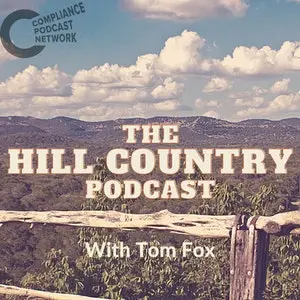I recently had the opportunity to visit with, Chris Mason, VP Global Compliance & Investigations at Infortal Worldwide and Dr. Ian Oxnevad, Director, Geopolitical Risk at Infortal Worldwide for a sponsor podcast on Infortal Worldwide’s Geopolitical Risk Intelligence 2023 Outlook. Over this series we consider business intelligence, ESG intelligence, corruption intelligence, sanctions intelligence and supply chain intelligence. In today’s post, I visited with Chris Mason as we consider how to protect your business from corruption, and learn how to stay in compliance with international regulations.
Here are the steps you need to follow to also get compliance, collaboration, knowledge.:
1. Setting a company’s cultural outlook on anti-corruption regulation.
2. Understanding the local business culture in the jurisdictions where business is conducted.
3. Having boots on the ground intelligence to understand local customs, business norms, and risk.
1. Setting a company’s cultural outlook on anti-corruption regulation.
Setting a company’s cultural outlook on anti-corruption regulation is an essential part of ensuring compliance with the Foreign Corrupt Practices Act (FCPA). This outlook should be set from the top down, so that it is clear to all employees that the company is committed to upholding anti-corruption regulations. Additionally, it is important to understand the local business and cultural norms of the jurisdictions in which the company is doing business. Companies should take an open source, intelligence-based approach to collecting information on the local landscape, and they should also consider having boots on the ground to get a better idea of how the third parties they work with are conducting business. Finally, companies should be aware of the differences between their own local laws and regulations and those of the jurisdictions in which they are doing business, as well as the differences in attorney-client privilege. With these steps, companies can ensure that they are setting a strong cultural outlook on anti-corruption regulation.
2. Understanding the local business culture in the jurisdictions where business is conducted.
Understanding the local business culture in the jurisdictions where business is conducted is a critical step when expanding operations abroad. It is important to gain a holistic view of the business culture before entering a new market. To do this, companies should take a top-down approach to set a corporate culture outlook and expectations for compliance. Additionally, companies should research the local business customs, norms, and legal systems to ensure they are abiding by the laws. It is also important to build relationships with local resources to do in-country searches and gain an understanding of the culture. This is especially important when entering countries with different legal systems, such as the United Kingdom. The Department of Justice and other foreign prosecutorial powers have also worked together on enforcement actions, such as in Brazil, where US. Federal law enforcement backed up the Brazilian authorities in bringing down webs of corruption. In order to gain a comprehensive understanding of local business culture, companies should utilize open source intelligence to gather information and have boots on the ground to understand the risk profile of individuals and companies. Doing this due diligence can help companies to understand the local culture and make informed decisions on how to operate in the new jurisdiction.
3. Having boots on the ground intelligence to understand local customs, business norms, and risk.
Having boots on the ground intelligence to understand local customs, business norms, and risk is a critical aspect of conducting business in overseas markets. To ensure that a business is not engaging in any unethical or illegal practices, it is important to have a thorough understanding of the local customs, business norms, and risk associated with the market. One way to do this is by utilizing a “boots on the ground” intelligence approach. This approach involves having an in-country source do an in-depth research into the local business and cultural norms. This research should include public record searches, courthouse searches, media searches, and other in-depth research. This type of research will help businesses understand how their third-party agents and vendors conduct business in the local jurisdiction. Additionally, it will help businesses identify any potential risks associated with the local market. By utilizing a boots on the ground intelligence approach, businesses can ensure that they are following all applicable laws and regulations, and that they are engaging in ethical business practices.
In order to combat corruption and stay in compliance with international regulations, companies must set a corporate cultural outlook on anti-corruption regulation from the top down, understand the local business culture in the jurisdictions where business is conducted, and have boots on the ground intelligence to understand local customs, business norms, and risk. With these steps, companies can ensure that they are setting a strong cultural outlook on anti-corruption regulation and that they are operating within the law. With the right mindset and approach, companies can protect their business from corruption and enjoy the rewards that come with international expansion. So don’t be afraid to go global – with the right due diligence and research, you can achieve success while staying in compliance with international regulations.
Join us tomorrow where we take up Sanctions Intelligence.
Check out Chris on the Riskology by Infortal podcast here.






